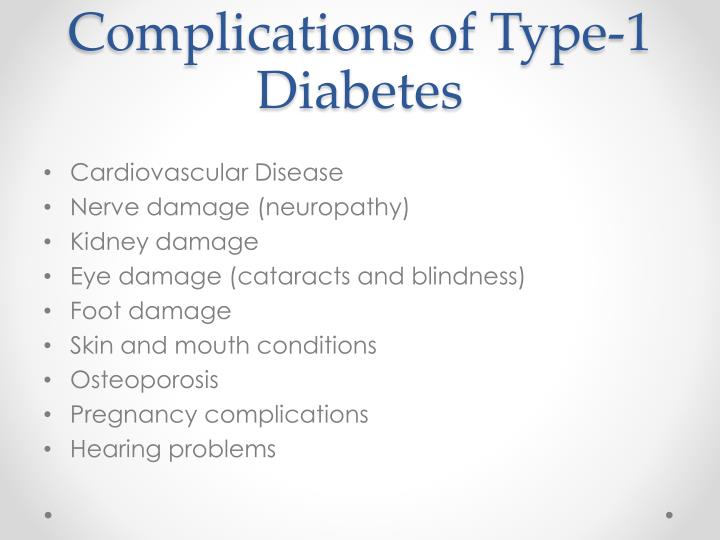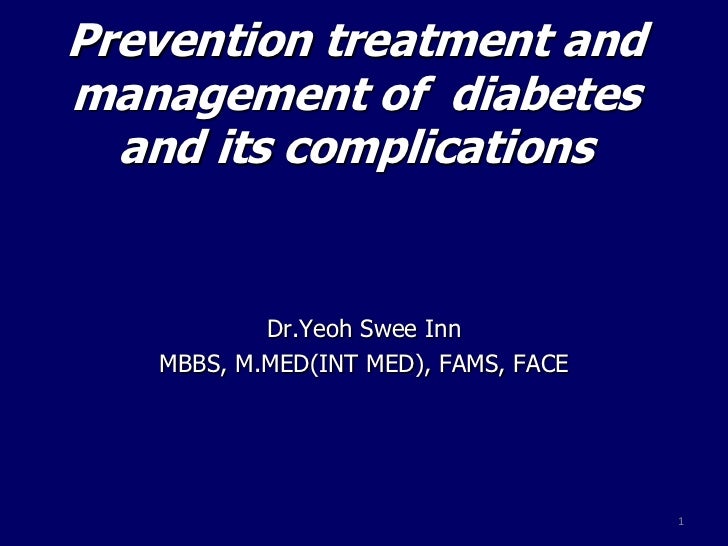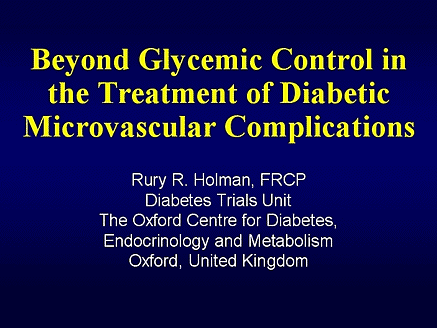Diabetes Complications Treatment


For people with diabetes, however, these common foot problems can lead to infection and serious complications, such as amputation. athlete's foot. athlete's foot is a fungus that causes itching. For people with diabetes, however, these common foot problems can lead to infection and serious complications, such as amputation. athlete's foot. athlete's foot is a fungus that causes itching. Diabetes is a chronic condition characterized by high levels of sugar (glucose) in the blood. the two types of diabetes are referred to as type 1 (insulin dependent) and type 2 (non-insulin dependent). symptoms of diabetes include increased urine output, thirst, hunger, and fatigue. treatment of diabetes depends on the type.
Knowing the symptoms, potential complications, and possible treatment options can be vital for a person living with diabetes. read on to learn more. image credit: stephen kelly, 2019. Complications. diabetes increases your risk for many serious health problems. the good news? with the correct treatment and recommended lifestyle changes, many people with diabetes are able to prevent or delay the onset of complications. skin complications. stay alert for symptoms of skin infections and other skin disorders common in people.
Diabetic Foot Problems Symptoms Treatment And Care
The diabetes control and complications trial (dcct) was designed to test the glucose hypothesis and determine whether the complications of type 1 diabetes (t1dm) could be prevented or delayed. the diabetes complications treatment epidemiology of diabetes interventions and complications. Skin complications. diabetes can affect every part of the body, including the skin. in fact, such problems are sometimes the first sign that a person has diabetes. luckily, most skin conditions can be prevented or easily treated if caught early. some of these problems are skin conditions anyone can have, but people with diabetes get more easily.
The sooner you get treatment, the better for you, your quality of life, and your diabetes. ask your doctor to refer you to a mental health counselor who specializes in chronic health conditions. join a diabetes support group pdf icon [pdf 1 mb] external icon so you can share your thoughts and feelings with people who have the same concerns. Controlling blood sugar (glucose) levels is the major goal of diabetes treatment, in order to prevent complications of the disease. type 1 diabetes is managed with insulin as well as dietary changes and exercise. type 2 diabetes may be managed with non-insulin medications, insulin, weight reduction, or dietary changes. Diabetes in youth. about 210,000 americans under age 20 are estimated to have diagnosed diabetes, approximately 0. 25% of that population. in 2014—2015, the annual incidence of diagnosed diabetes in youth was estimated at 18,200 with type 1 diabetes, 5,800 with type 2 diabetes. diabetes by race/ethnicity. People with diabetes are 2 to 3 times more likely to have depression than people without diabetes. only 25% to 50% of people with diabetes who have depression get diagnosed and treated. but treatment—therapy, medicine, or both—is usually very effective. and without treatment, depression often gets worse, not better.
Early treatment of infections can prevent more serious complications. dental problems in diabetes people with diabetes face a higher than normal risk of serious dental and oral health problems. The diabetes: treatment, prevention, and complications program supports both basic and clinical studies aimed at addressing the prevention, treatment and pathophysiology of type 1 and type 2 diabetes. studies on drug development or testing of diabetes complications treatment medical therapies to treat type 1 and type 2 diabetes are included in this program.
Diabetes Symptoms Causes Treatment Prevention And More
Get the right care for you. diabetes is a common disease, yet every individual needs unique care. we encourage people with diabetes and their loved ones to learn as much as possible about the latest medical therapies and approaches, as well as healthy lifestyle choices. this, plus good communication. Diabetic gastroparesis is a diabetes-related condition that affects the emptying of the stomach. symptoms include nausea and heartburn. this article gives an overview of diabetic gastroparesis. Treatments for type 1 and type 2 diabetes. treatment for type 1 diabetes involves insulin injections or the use of an insulin pump, frequent blood sugar checks, and carbohydrate counting. treatment of type 2 diabetes primarily involves lifestyle changes, monitoring of your blood sugar, along with diabetes medications, insulin or both.

The symptoms of these complications include confused thinking, weakness, nausea, vomiting, and even seizures and coma. in some cases, diabetic ketoacidosis or hyperosmolar syndrome is the first sign that a diabetes complications treatment person has diabetes. the treatment of diabetes also can produce symptoms. Type 2 diabetes is a serious disease, and following your diabetes treatment plan takes round-the-clock commitment. but your efforts are worthwhile because following your treatment plan can reduce your risk of complications. anxiety and depression are more common in people who have diabetes.
Early treatment can help prevent or delay diabetes-related health conditions and improve your overall health. your prevention toolkit a healthy lifestyle is your road map for managing diabetes, which is the key to preventing or delaying complications:. Type 2 diabetes can increase your risk of a number of complications that affect the feet. most diabetes-related foot issues are caused by nerve damage, sometimes referred to as neuropathy. Doctors treat diabetes with a few different medications. some of these drugs are taken by mouth, while others are available as injections.. type 1 diabetes. insulin is the main treatment for type. Long-term complications of diabetes develop gradually. the longer you have diabetes — and the less controlled your blood sugar — the higher the risk of complications. eventually, diabetes complications may diabetes complications treatment be disabling or even life-threatening. possible complications include: cardiovascular disease.
Although diabetes cannot be cured it can be managed and treatment aims to keep blood glucose levels as near to normal as possible, reduce any risk factors that may be present and increase the risk of the patient developing complications and screen for and detect complications as early as possible. Introduction. most current clinical diabetes-related guidelines for diabetes complications treatment hba 1c treatment goals recommend hba 1c of ∼7% or lower in order to reduce microvascular and macrovascular complications for most nonpregnant adults with diabetes (1–6). guidelines also recommend more stringent hba 1c goals for individuals with a short duration of diagnosed diabetes, long life expectancy, and no. Treatment for diabetes requires keeping close watch over your blood sugar levels and exercise -that may help control your blood sugar and prevent complications of diabetes.
Comments
Post a Comment